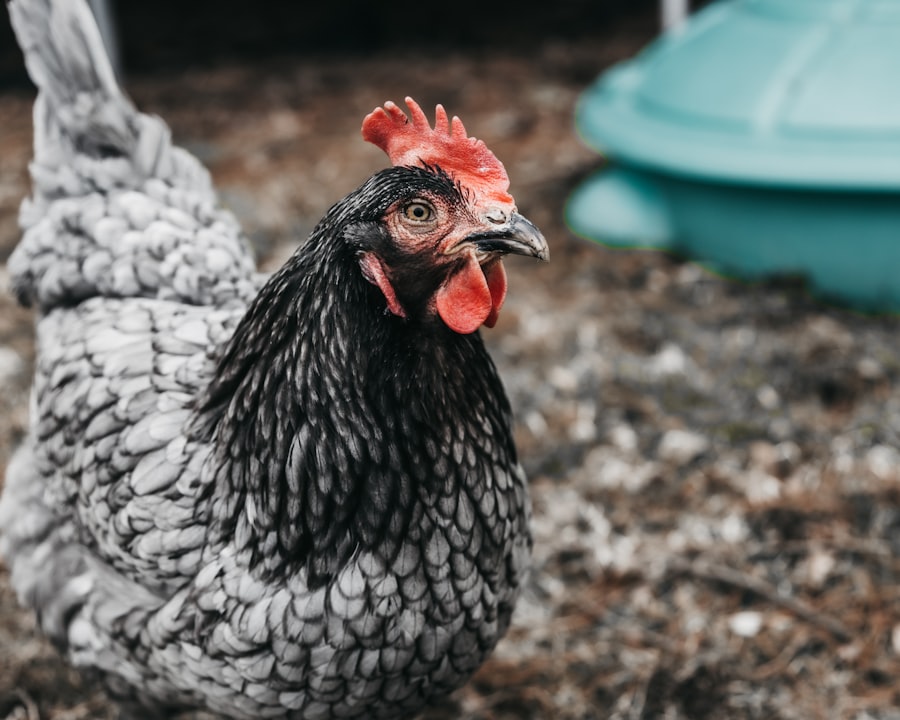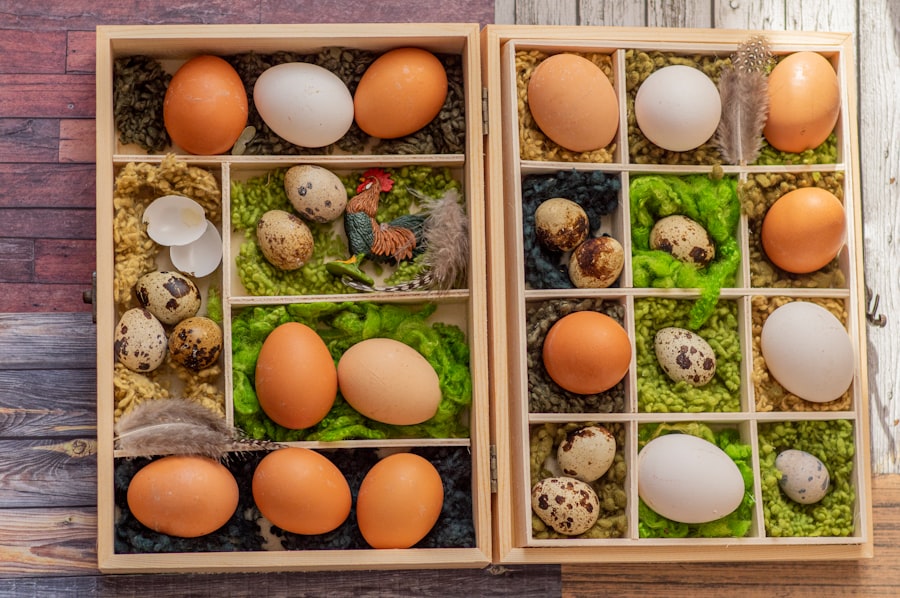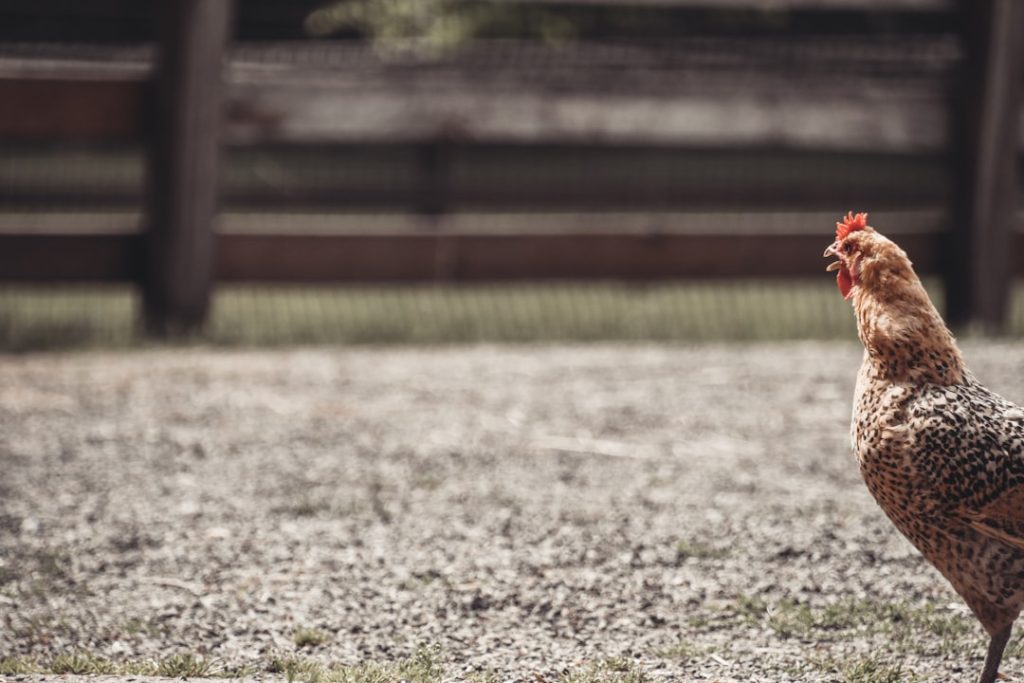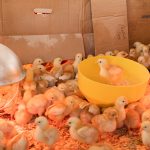Raising baby chickens, or chicks, is a fulfilling endeavor for poultry enthusiasts of all experience levels. Proper care during their early life stages is crucial for their development into healthy adult chickens. This involves providing appropriate nutrition and creating a safe, comfortable environment.
Whether raising chicks for egg production, meat, or as pets, understanding best practices is essential for their well-being. Successful chick-rearing begins with selecting the right breed for your specific needs and acquiring necessary supplies and equipment. Knowledge of chick developmental stages and their corresponding requirements is vital for optimal health and growth.
Key milestones in a chick’s life, such as brooding and transitioning to outdoor environments, require careful attention and management. By implementing proper care techniques, poultry keepers can create an ideal environment for chicks to thrive. This includes maintaining appropriate temperature and humidity levels, providing clean water and nutritious feed, and ensuring adequate space and ventilation.
Regular health checks and preventive measures against common chick ailments are also important aspects of responsible chick-rearing.
Table of Contents
- 1 The Importance of Keeping Baby Chickens Inside
- 2 Determining the Right Time to Transition Baby Chickens Outside
- 3 Providing a Safe and Secure Outdoor Environment for Baby Chickens
- 4 Monitoring the Weather and Temperature for Outdoor Transition
- 5 Gradual Introduction to the Outdoors for Baby Chickens
- 6 Signs that Baby Chickens are Ready to Stay Outside Full-Time
- 7 FAQs
- 7.1 How long should baby chickens be kept inside?
- 7.2 What are the reasons for keeping baby chickens inside?
- 7.3 What should the indoor environment be like for baby chickens?
- 7.4 How can I transition baby chickens from inside to outside?
- 7.5 What are the signs that baby chickens are ready to go outside?
Key Takeaways
- Raising baby chickens requires careful attention and consideration of their needs for a healthy and successful transition to adulthood.
- Keeping baby chickens inside initially is important for their safety, warmth, and protection from predators.
- The right time to transition baby chickens outside is when they are fully feathered and able to regulate their own body temperature.
- Providing a safe and secure outdoor environment for baby chickens is essential to protect them from predators and the elements.
- Monitoring the weather and temperature is crucial when transitioning baby chickens outside to ensure they are comfortable and safe.
- Gradually introducing baby chickens to the outdoors helps them acclimate and build confidence in their new environment.
- Signs that baby chickens are ready to stay outside full-time include their ability to roost, forage, and exhibit natural behaviors without stress or discomfort.
The Importance of Keeping Baby Chickens Inside
Protection from Environmental Stressors
Baby chickens are fragile and vulnerable to temperature fluctuations, predators, and other environmental stressors. By keeping them inside, you can provide a controlled and safe environment that allows them to grow and develop without unnecessary risks.
Close Monitoring and Care
Keeping baby chickens inside allows you to closely monitor their behavior, health, and growth, making it easier to identify any potential issues or concerns that may arise. Furthermore, keeping baby chickens inside provides them with the warmth and protection they need during their early stages of life.
Maintaining a Consistent Temperature
Chicks require a consistent temperature of around 95 degrees Fahrenheit during their first week of life, which can be difficult to maintain outdoors, especially at night or during inclement weather. By keeping them inside with a heat source, such as a brooder lamp or heating pad, you can ensure that they stay warm and comfortable as they adjust to their new environment.
Overall, keeping baby chickens inside provides them with the necessary support and care they need to thrive during their early stages of life.
Determining the Right Time to Transition Baby Chickens Outside

Determining the right time to transition baby chickens outside is a critical step in their development. While keeping them inside provides essential warmth and protection during their early stages of life, there comes a point when they need to begin acclimating to the outdoor environment. The timing of this transition depends on several factors, including the age of the chicks, the weather conditions, and the availability of a safe and secure outdoor space for them to explore.
Typically, baby chickens can begin transitioning outside around 6-8 weeks of age, once they have developed their feathers and are better equipped to regulate their body temperature. However, it’s important to consider the weather conditions during this time, as extreme temperatures or inclement weather can pose risks to the chicks’ health and well-being. Additionally, ensuring that the outdoor space is predator-proof and provides adequate shelter, food, and water is essential for a successful transition.
By carefully assessing these factors, you can determine the right time to transition your baby chickens outside and set them up for a smooth and successful adjustment.
Providing a Safe and Secure Outdoor Environment for Baby Chickens
When transitioning baby chickens outside, it’s crucial to provide them with a safe and secure outdoor environment that meets their specific needs. This includes ensuring that the outdoor space is predator-proof, well-ventilated, and equipped with appropriate shelter, food, and water sources. Predators such as raccoons, foxes, and birds of prey pose a significant threat to baby chickens, so it’s important to take measures to protect them from potential harm.
In addition to predator-proofing the outdoor space, providing adequate shelter is essential for baby chickens’ well-being. This can include a secure coop or shelter where they can roost at night and seek refuge from inclement weather. Access to fresh food and water is also crucial for their health and development, so ensuring that these resources are readily available in the outdoor environment is essential.
By creating a safe and secure outdoor environment for baby chickens, you can minimize potential risks and provide them with the necessary support to thrive outside.
Monitoring the Weather and Temperature for Outdoor Transition
Monitoring the weather and temperature is crucial when transitioning baby chickens outside. Sudden changes in temperature or extreme weather conditions can pose risks to the health and well-being of baby chickens, so it’s important to be mindful of these factors during the transition process. Before moving baby chickens outside, it’s essential to assess the weather forecast and ensure that conditions are suitable for their adjustment to the outdoor environment.
Additionally, monitoring the temperature in the outdoor space is important for ensuring that baby chickens can regulate their body temperature effectively. Providing access to shade during hot weather and ensuring that they have a warm and dry shelter during cooler temperatures is essential for their comfort and well-being. By staying vigilant about the weather and temperature conditions, you can make informed decisions about when it’s safe to transition your baby chickens outside and provide them with the necessary support to thrive in their new environment.
Gradual Introduction to the Outdoors for Baby Chickens

Gradual Introduction to Minimize Stress
When transitioning baby chickens outside, it’s essential to introduce them gradually to their new environment. This gradual approach allows them to acclimate to the outdoor space at their own pace while minimizing stress and potential risks.
Supervised Outings for a Smooth Transition
One way to facilitate a gradual introduction is by starting with short supervised outings in a secure outdoor area before allowing them full access to the entire space. During these supervised outings, it’s crucial to observe how the baby chickens interact with their surroundings and monitor their behavior closely.
Monitoring Behavior and Adapting to the Environment
This allows you to assess their comfort level and ensure that they are adapting well to the outdoor environment. As they become more familiar with the outdoor space, you can gradually increase the duration of their outings until they are ready for full-time access.
A Comfortable and Confident Transition
By taking a gradual approach to introducing baby chickens to the outdoors, you can help them feel more comfortable and confident in their new environment while minimizing potential stress or anxiety.
Signs that Baby Chickens are Ready to Stay Outside Full-Time
There are several signs that indicate when baby chickens are ready to stay outside full-time. These signs include their ability to regulate their body temperature effectively, their comfort level in the outdoor environment, and their behavior when interacting with other chickens or exploring the outdoor space. Additionally, if they are actively foraging for food, dust bathing, or exhibiting other natural behaviors associated with outdoor living, these are positive indicators that they are ready for full-time access.
It’s also important to observe how baby chickens respond to changes in weather conditions and fluctuations in temperature. If they are able to seek shelter or adjust their behavior accordingly in response to these changes, it’s a good indication that they are adapting well to their outdoor environment. By paying attention to these signs and behaviors, you can determine when your baby chickens are ready to stay outside full-time and provide them with the opportunity to thrive in their natural habitat.
In conclusion, raising baby chickens requires careful consideration of their specific needs at each stage of development. From providing a safe and nurturing indoor environment to facilitating a successful transition outdoors, there are several key factors to consider when raising baby chickens. By understanding the best practices for their care and well-being, you can create a positive and supportive environment that allows them to grow into healthy and productive adult chickens.
With proper attention and care, raising baby chickens can be a fulfilling experience that yields rewarding results for both you and your feathered friends.
If you’re considering keeping baby chickens inside, you may also be interested in learning about the benefits of having a garden chicken coop. This article from Poultry Wizard discusses the advantages of having a coop in your garden, including the ability to provide fresh eggs for your family and the opportunity to teach children about responsibility and animal care. Check out the full article here.
FAQs
How long should baby chickens be kept inside?
Baby chickens should be kept inside for the first 6-8 weeks of their life to ensure they are fully feathered and able to regulate their body temperature before being introduced to the outdoors.
What are the reasons for keeping baby chickens inside?
Keeping baby chickens inside helps protect them from predators, harsh weather conditions, and ensures they have access to proper nutrition and warmth during their early development.
What should the indoor environment be like for baby chickens?
The indoor environment for baby chickens should be warm, dry, and well-ventilated. It should also provide access to clean water, proper nutrition, and enough space for the chicks to move around and exercise.
How can I transition baby chickens from inside to outside?
When transitioning baby chickens from inside to outside, it’s important to gradually introduce them to the outdoor environment. This can be done by allowing them supervised access to a secure outdoor area during the day and bringing them back inside at night for the first few weeks.
What are the signs that baby chickens are ready to go outside?
Baby chickens are ready to go outside when they are fully feathered, active, and able to maintain their body temperature without supplemental heat. They should also be alert, healthy, and showing no signs of stress or weakness.
Meet Walter, the feathered-friend fanatic of Florida! Nestled in the sunshine state, Walter struts through life with his feathered companions, clucking his way to happiness. With a coop that’s fancier than a five-star hotel, he’s the Don Juan of the chicken world. When he’s not teaching his hens to do the cha-cha, you’ll find him in a heated debate with his prized rooster, Sir Clucks-a-Lot. Walter’s poultry passion is no yolk; he’s the sunny-side-up guy you never knew you needed in your flock of friends!







